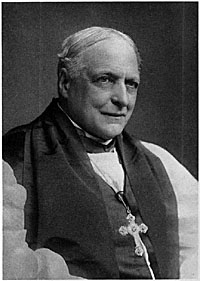The Dunning–Kruger effect is a cognitive bias in which an unskilled person makes poor decisions and reaches erroneous conclusions, but their incompetence denies them the metacognitive ability to realize their mistakes. The unskilled therefore suffer from illusory superiority, rating their own ability as above average, much higher than it actually is, while the highly skilled underrate their abilities, suffering from illusory inferiority. This leads to the situation in which less competent people rate their own ability higher than more competent people. It also explains why actual competence may weaken self-confidence: because competent individuals falsely assume that others have an equivalent understanding. "Thus, the miscalibration of the incompetent stems from an error about the self, whereas the miscalibration of the highly competent stems from an error about others."
First, everybody knows that if you can't pass muster in the musical world, you can always get an audience at church. It seems we have even less standards for performers than we do for members.
Maybe it's not always that bad...but I'm willing to bet that most of you have sat through a painful offertory or two in your life.
 And it's not just poor performance. The actual compositions these days are TERRIBLE. Theologically vapid. Poetically unsound. And intentionally unsingable. I tend to agree with C.S. Lewis, who thought that most (traditional English) hymns were "fifth-rate poetry set to sixth-rate music." However, those hymns have never made me want to burst into tears or write letters to the bishop. They have never made me worry about the children who were taught to sing them. Aesthetic quality isn't really the point, although God deserves the best -- at the very least we should not be forced to sing heresy. Our music should elevate us to assume God's perspective rather than reiterate our own. It should focus on on Christ and His Kingdom rather than moor us in our own experience. (Contrary to contemporary opinion, Latin chant is not only breathtakingly beautiful, it's pretty easy to learn. Certainly it's easier to sing than some of those showtunes that pass for praise and worship these days!)
And it's not just poor performance. The actual compositions these days are TERRIBLE. Theologically vapid. Poetically unsound. And intentionally unsingable. I tend to agree with C.S. Lewis, who thought that most (traditional English) hymns were "fifth-rate poetry set to sixth-rate music." However, those hymns have never made me want to burst into tears or write letters to the bishop. They have never made me worry about the children who were taught to sing them. Aesthetic quality isn't really the point, although God deserves the best -- at the very least we should not be forced to sing heresy. Our music should elevate us to assume God's perspective rather than reiterate our own. It should focus on on Christ and His Kingdom rather than moor us in our own experience. (Contrary to contemporary opinion, Latin chant is not only breathtakingly beautiful, it's pretty easy to learn. Certainly it's easier to sing than some of those showtunes that pass for praise and worship these days!)Secondly, the article proffers education as a means of addressing the problem. I couldn't agree more. I enjoy introducing people to good church music. I'm no music expert, but I have a good ear and a wide-ranging appreciation for it. (Yes, even the modern guitar-stuff can be well done on all accounts...for some reason, most just choose not to go through the effort.)
But this isn't just about music. What about PRAYER? Have you ever been stuck in a prayer group with someone who just has to use "just" just about every other word? (just)
“Lord, just hear us tonight. We just lift up our hands to you and pray that you will just send you love down to us in ways we just can’t understand. Take us just as we are Lord. Just, just. Just, just.”
I'm not advocating doing away with private, highly-personal prayers. But I'm trying to aim for a balance. Looking at high quality public prayers will help us to improve our own private prayer life. It will lift us beyond searching for words and aim us toward seeking God's face in prayer.
Lastly, many Christians settle for a poorly trained ministry. While roughly half of active full-time clergy have at least a bachelor's degree, the other half...doesn't. I don't want to fall into the trap of credentialism, but there is plenty to be said for having had a good bit of formalized training in the texts of Scripture, the theological and historical tradition of the church, and pastoral practice. I'm not so much concerned with post-nominals that come with that formation but rather with the habits and attitudes it fosters as well as the data conveyed.
I'm really concerned for a church that's led by someone who has no real sense of church history beyond hearsay from grandparents about the good ol'days. And someone who has only read the Scriptures for themselves and then teaches that as God's word is little more than a medieval pope mistaking his opinion for God's revelation. Reading Scripture together is necessary for the people of God so that we can come to a common understanding, at least on Scripture's principle teachings. (Col. 4:16; 1 Th. 5:27; cf. Neh. 8)
Those are just a few of my thoughts on this. Where else should we be looking?











